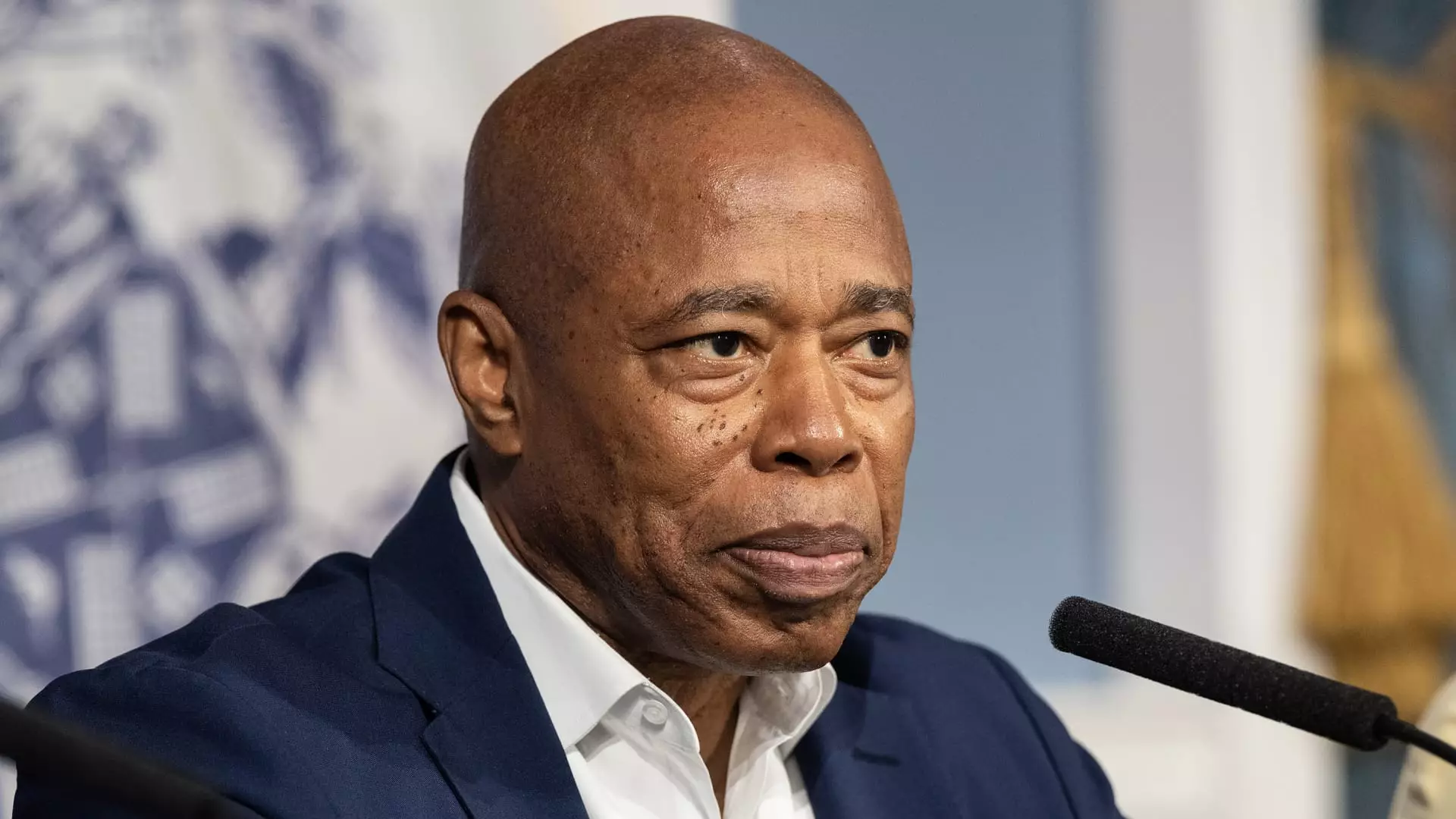In a shocking turn of events, President-elect Donald Trump expressed interest in potentially pardoning New York City Mayor Eric Adams, who currently faces federal corruption charges. This unexpected comment, made during a press conference at his Mar-a-Lago resort, has stirred a myriad of reactions and poses questions surrounding the intersection of politics and justice. Trump’s remarks, which came amidst an announcement of investment commitments by Softbank CEO Masayoshi Son, highlight the complexities of political allegiances and the often blurry lines between support and self-interest.
Adams, a Democrat who has publicly challenged aspects of the Biden administration’s immigration policies, is currently embroiled in serious allegations. These charges, focusing on acceptance of luxurious gifts and potential conspiracies linked to campaign finances, span a period of nearly ten years. Trump’s suggestion that Adams was treated unfairly reveals a willingness to reinterpret the gravity of these accusations, hinting that he views them as insignificant. By comparing such allegations—such as receiving an upgrade on a flight—to the broader spectrum of political prosecutions, Trump is attempting to refract public perception of Adams’ legal troubles through a lens of political victimhood.
Trump’s observations about Adams are not simply the musings of a supportive ally; they reveal deeper strategic calculations. By hinting at the possibility of a pardon, Trump may be attempting to strengthen his position within the Democratic community in New York, though he himself acknowledges a broader disregard for the legal intricacies at play. Furthermore, his comment about Adams being targeted for his criticisms of the administration not only solidifies the mayor’s narrative of political persecution but also underlines a significant potential divide within the political landscape.
Moreover, Trump’s remarks appear to link Adams’ legal struggles directly to his stance on immigration, suggesting that the mayor’s frank discussions about the migrant crisis positioned him as a target for federal scrutiny. Trump’s attempts at jest—stating he predicted Adams’ indictment—bear an undertone of seriousness that denies the intricacies of the legal process, while also trying to bolster Adams as a figure of resistance among a potentially dissatisfied voter base.
Should a pardon ever be granted to Adams, it would set a powerful precedent in contemporary American politics, showcasing the blurred lines between accountability and political favor. Additionally, it magnifies the concept of allegiance, where political figures may leverage support around instances of perceived injustice for their gain.
As the dust settles, the relationship between Trump and Adams is poised to evolve amid a rapidly changing political climate. With ongoing investigations and public opinion steadily shifting, the collaboration between the two disparate political figures could symbolize a broader understanding of the intricate web of alliances that navigate the U.S. political landscape. The ramifications of this potential pardon may not only influence Adams’ political future but also serve as a significant touchstone for the broader narrative of governance in the face of corruption allegations.

